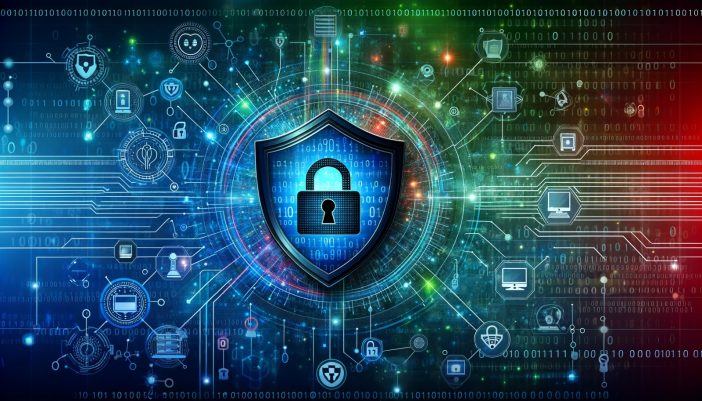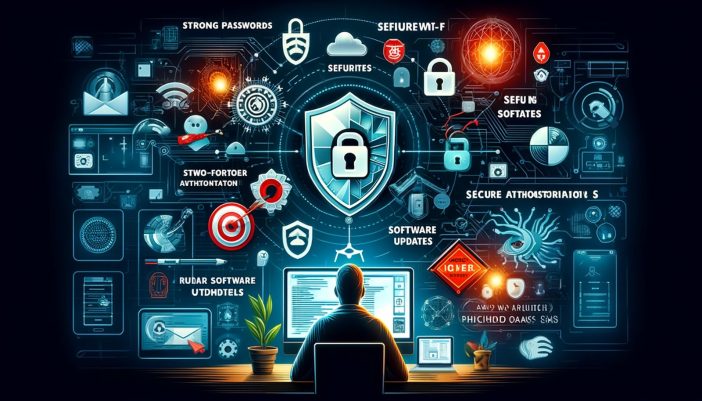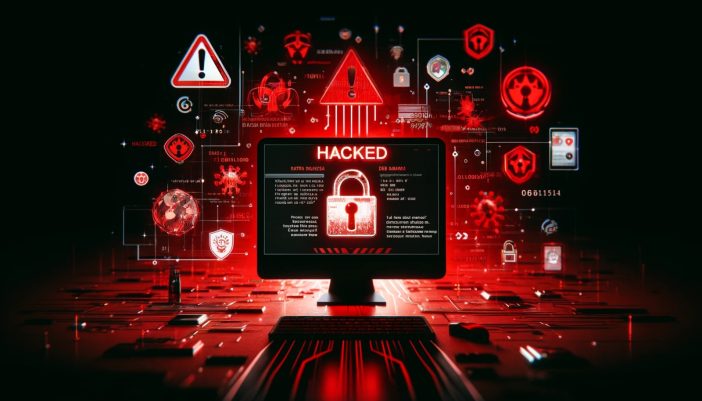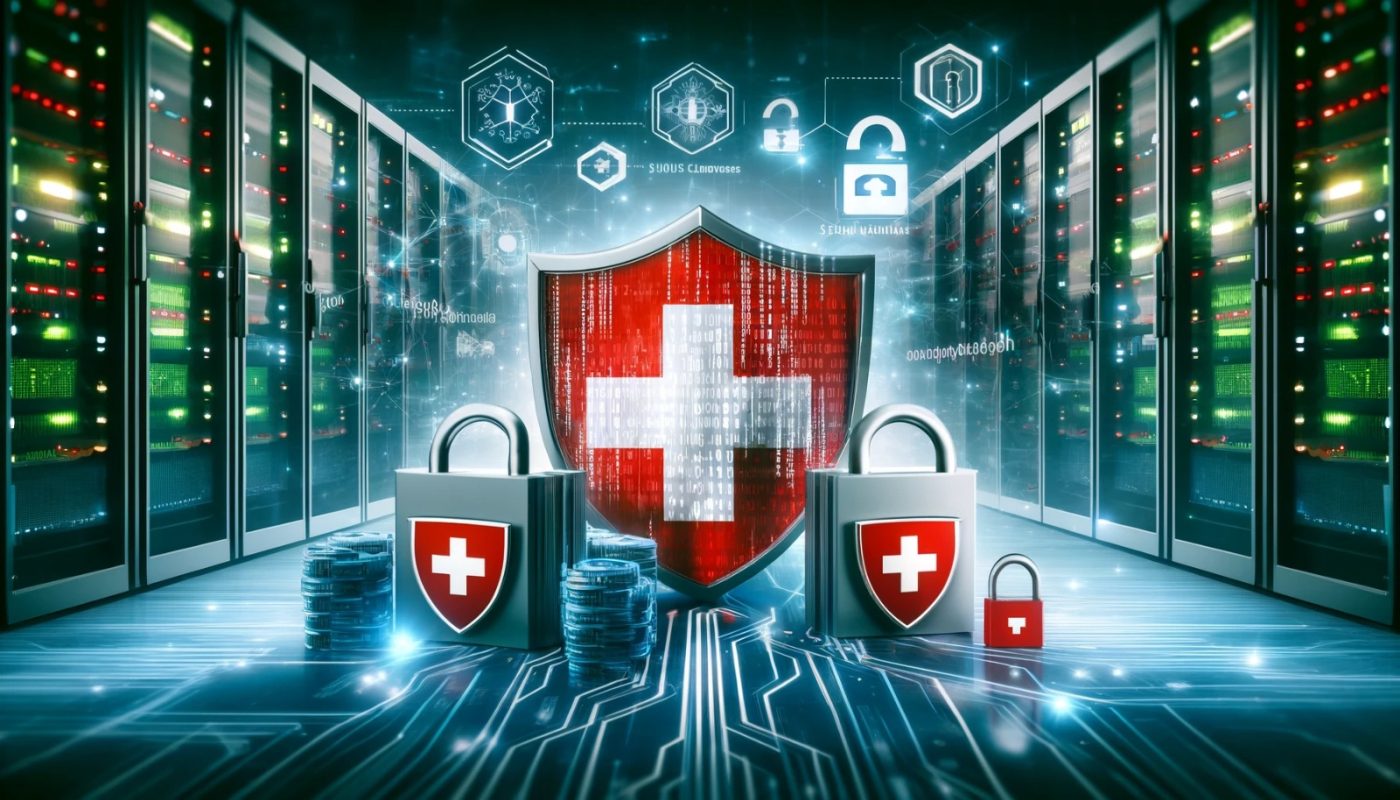Switzerland, a global symbol of neutrality and stability, is not just a financial hub but also a pioneer in cyber security. Switzerland’s unique and proactive approach, which you are a part of, stands out as the threat landscape evolves. This article explores the country’s distinctive cyber security strategies, measures, and initiatives, underlining Switzerland’s pivotal role in defending against cyber-attacks and guiding you on what to do if you fall victim to a hack.
Before diving into the details, here’s a quick rundown of what you’ll learn in this article:
- Switzerland’s national cyber security strategies and initiatives
- Practical tips for protecting yourself from cyber-attacks
- Steps to take if you’ve been hacked
Switzerland’s National Cyber Security Strategy and Initiatives

Switzerland has taken a comprehensive and systematic approach to cyber security, focusing on prevention and response. Here are some critical elements of their strategy:
-
National Cyber Security Centre (NCSC)
The National Cyber Security Centre (NCSC) is the backbone of Switzerland’s cyber security efforts. The federal government’s primary cyber hub serves as the first line of defense for businesses, public services, educational institutions, and the general public against cyber threats. Its pivotal role is coordinating the implementation of the national cyber strategy (NCS) and ensuring the nation’s digital resilience, making it a key player in Switzerland’s cyber security landscape.
The importance of cybersecurity has skyrocketed, permeating all levels of society. It is not just about protecting businesses and individuals in cyberspace. It is a cornerstone of national and international foreign and security policies. As a result, safeguarding cybersecurity has become a paramount federal responsibility, underscoring the gravity of the issue. Recognizing this importance, the Federal Council decided on 2 December 2022 to elevate the National Cyber Security Centre (NCSC) to a federal office, effective 1 January 2024, and to integrate it into the Federal Department of Defence, Civil Protection, and Sport (DDPS).
The NCSC aims to fortify cybersecurity within critical infrastructures, the economy, the education system, the general population, and governmental entities. This mission is achieved by orchestrating the implementation of the National Cyber Strategy (NCS). To this end, its services are built on four strategic pillars:
- Making cyber threats understandable.
- Providing means to prevent cyber attacks.
- Limiting the damage from cyber incidents, and
- Increasing the security of digital products and services.
-
National Cyberstrategy (NCS).
The new National Cyber strategy, adopted in April 2023, builds on the foundations laid by the previous two strategies to protect Switzerland from cyber attacks, implemented between 2012-2017 and 2018-2022. It aligns with Switzerland’s broader digitalisation and security policy framework. The status of cyber threat protection in Switzerland is institutionally represented through the organisation of the Confederation and the bodies established to foster collaboration among the Confederation, cantons, the business sector, and academic institutions. The initial two strategies primarily focused on developing and enhancing capabilities, structures, and processes.
The new cyber strategy, endorsed by the Federal Council and the cantons, supersedes the previous strategy, setting the framework for this cooperation and outlining shared objectives and measures. These include:
- Empowerment: Switzerland solidifies its status as a global leader in knowledge, education, and innovation, particularly cybersecurity. Leveraging these strengths, Switzerland independently evaluates cyber risks across supply chains, anticipates technological advancements, and responds swiftly. The public is educated about cyber risks, enabling them to use digital services confidently and securely.
- Secure digital services and infrastructure: Switzerland enforces measures nationwide to enhance cyber resilience. The Confederation and cantons establish the conditions to guarantee high protection, secure digital infrastructures, products, and services, and consciously manage risk appetite.
- Effective Cyberattack detection, prevention, management, and defense: Switzerland possesses the requisite capacities and organizational structures to promptly identify cyber threats and incidents in all scenarios and minimize damage. The nation is equipped to manage incidents effectively, even when they persist over an extended period and impact multiple sectors simultaneously.
- Effective combating and prosecuting cybercrime: Switzerland enhances its capability to identify cyberattack perpetrators, prosecute them collectively, and secure convictions within the bounds of the law.
- Leading role in international cooperation: Switzerland operates at operational and strategic levels to advocate for open, accessible, and secure cyberspace and ensure the full recognition, observance, and enforcement of international law in the digital realm. International Geneva serves as a premier venue for cybersecurity discussions. Additionally, Switzerland can mediate disputes related to cyber operations.
-
Public-Private Partnerships
Switzerland recognises the importance of collaboration between the public and private sectors. For instance, the Swiss Cyber Experts Association brings together leading cybersecurity professionals to share knowledge and develop best practices.
-
Cyber Security Exercises
Regular cyber security exercises are conducted to test the preparedness of various stakeholders. These exercises simulate real-world cyber incidents, helping organisations to improve their response capabilities.
-
Swiss Reporting and Analysis Centre for Information Assurance (MELANI)
MELANI plays a crucial role in Switzerland’s cybersecurity landscape. It provides up-to-date information on cyber threats, offers advice on protective measures, and facilitates reporting cyber incidents. MELANI collaborates with national and international partners to enhance Switzerland’s cybersecurity posture.
-
Cyber Defense Campus
Established in 2019 by the Federal Department of Defense, Civil Protection, and Sport (DDPS), the Cyber Defense Campus focuses on cybersecurity research, development, and innovation. It aims to strengthen Switzerland’s defense capabilities by fostering collaboration between academia, industry, and government.
Protecting Yourself from Cyber-Attacks

While Switzerland’s national measures are robust, individual vigilance is equally crucial. Here are some practical tips to protect yourself from cyber-attacks:
- Use Strong, Unique Passwords
Avoid using the same password for multiple accounts. Create strong passwords using letters, numbers, and special characters. Consider using a password manager to keep track of them. Use websites such as https://password.kaspersky.com/ to check whether your password is strong enough.
- Enable Multi-Factor Authentication (MFA)
MFA requires users to provide more than one piece of verifiable information to authenticate. It is designed to add additional layers of information to sensitive information.
- Keep Software Updated
Ensure that your operating system, applications, and antivirus software are always up to date. Updates often include security patches that protect against vulnerabilities.
- Be Wary of Phishing Scams
Phishing scams attempt to trick you into providing personal information by pretending to be a legitimate entity. Always verify the sender’s identity before clicking on links or opening attachments.
- Use Secure Connections
Avoid using public Wi-Fi for sensitive transactions. Use a virtual private network (VPN) to encrypt your connection if necessary.
- Backup Your Data
Regularly back up important data to an external drive or cloud service. This ensures that you can recover your information in case of a cyber-attack.
Note: To learn more on how to protect yourself from cyber attacks, see Information for individuals (admin.ch)
What to Do If You’ve Been Hacked

Discovering that you’ve been hacked can be alarming, but there are immediate steps you can take to minimize damage and protect yourself. Here’s a comprehensive guide on what to do if you suspect or confirm that you’ve been hacked:
Immediate Actions
- Change Your Passwords:
- Change passwords for your online accounts, starting with critical ones (email, banking, social media).
- Use strong, unique passwords for each account.
- Consider using a password manager to generate and store complex passwords.
- Enable a Multi-Factor Authentication (MFA):
- Add extra layers of security to your accounts.
- Use an authenticator app instead of SMS where possible.
- Check Your Accounts for Unauthorized Activity:
- Review bank accounts, credit cards, and other financial accounts for suspicious transactions.
- Check email and social media accounts for unusual activity or unauthorized logins.
- Update Your Software:
- Ensure your operating system, software, and apps are current.
- Install any available security patches.
Secure Your Devices
- Run Antivirus and Anti-Malware Scans:
- Use reputable antivirus software to scan your device for malware and remove any threats.
- Consider running a full system scan in safe mode for thorough detection.
- Reinstall the Operating System (if necessary):
- Consider reinstalling the operating system if the malware is persistent or you can’t remove it.
- Back up important files before proceeding.
- Change Security Questions:
- If your accounts use security questions, change them.
- Use questions and answers that are not easily guessable or found on social media.
Protect Your Identity
- Monitor Your Credit:
- Check your credit reports for unusual activity.
- Consider placing a fraud alert or credit freeze with the major credit bureaus.
- Notify Financial Institutions:
- Inform your bank and credit card companies about the breach.
- They may issue new cards and help monitor your accounts for fraud.
- Report the Hack:
- Report the incident to NCSC Report (admin.ch).
Conclusion
Switzerland’s approach to cyber security is a testament to its commitment to safeguarding its digital landscape. Switzerland aims to create a secure and resilient cyber environment by implementing robust national measures and encouraging individual vigilance. Whether you’re a resident or just looking to enhance your cyber security practices, these strategies and tips can help you stay one step ahead of cyber threats.
References:








This is so informative.Great job ?
Great content ?. Very enlightening